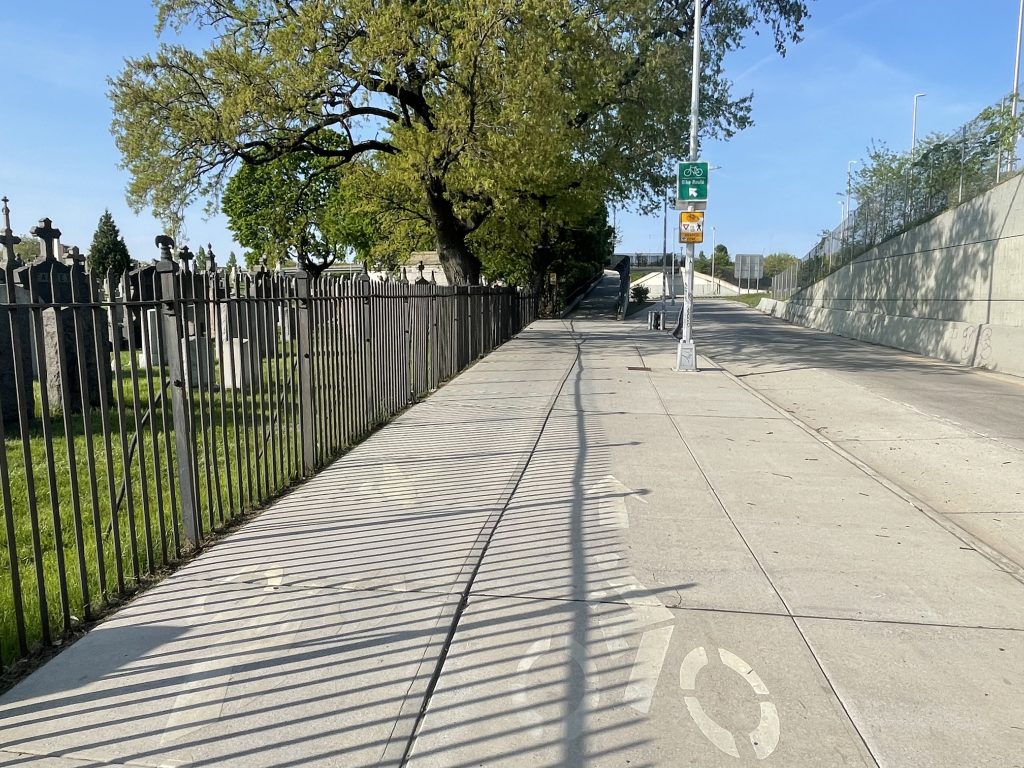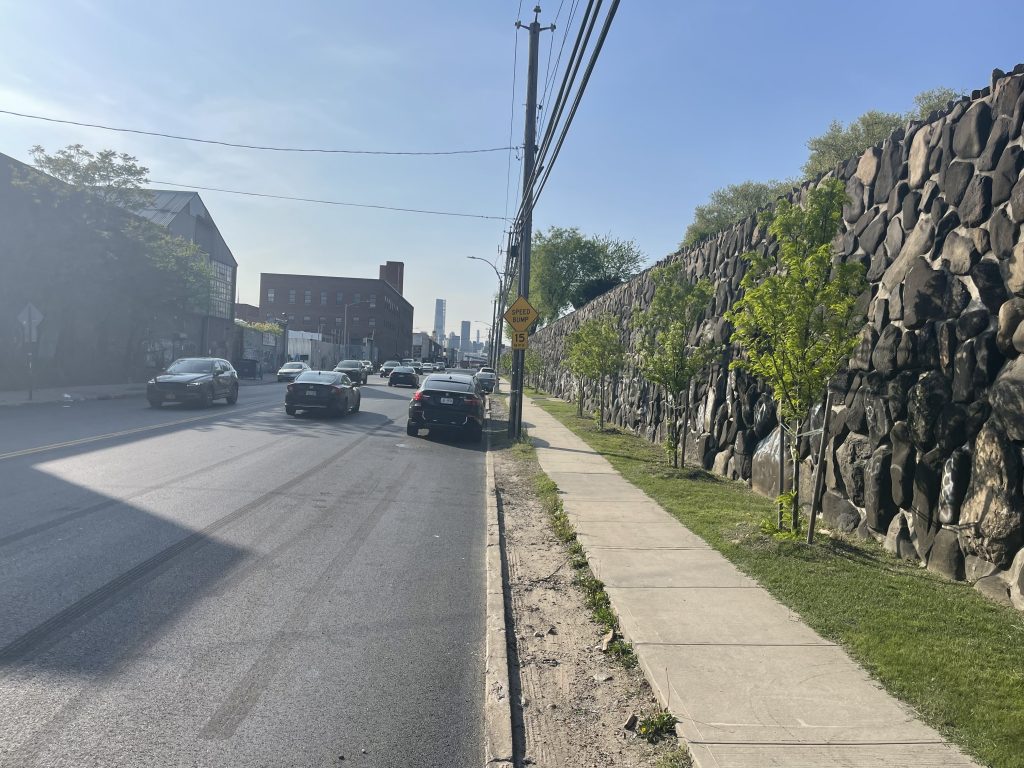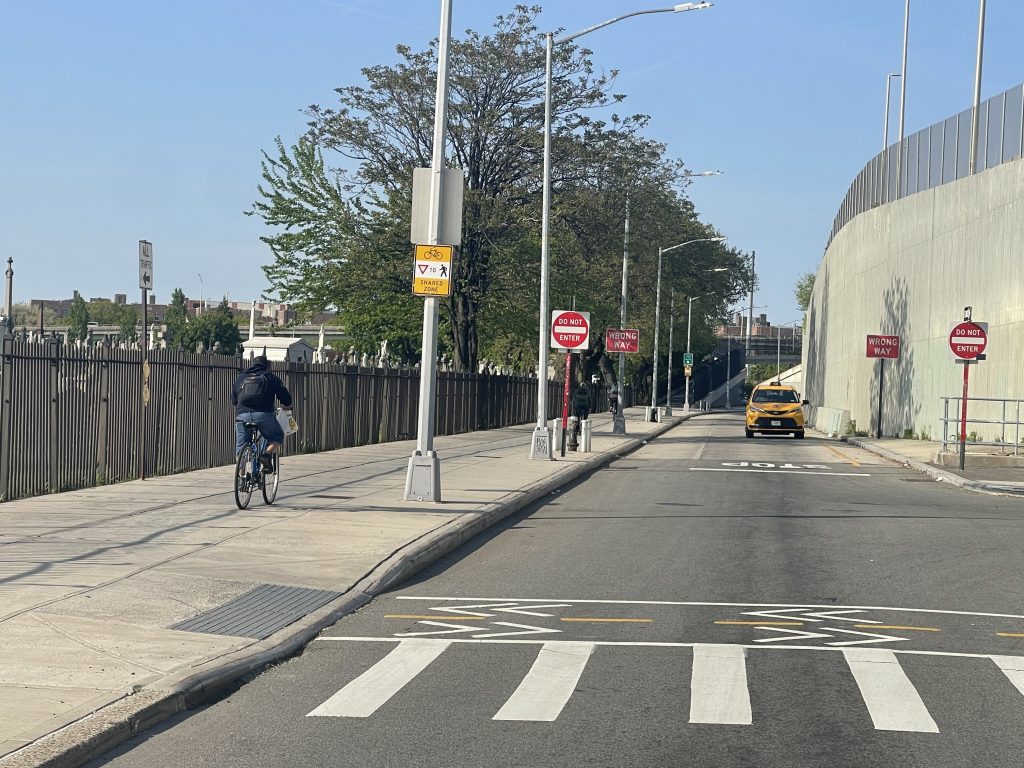
MOHAMED FARGHALY
mfarghaly@queensledger.com
A Queens court has ruled against a group of local business owners who sought to block the implementation of a new bicycle lane on Review Avenue, a key corridor in Long Island City. The businesses, which rely on large trucks for deliveries, argued that the proposed lane would impede their operations by reducing space for loading and parking.
The case centers on a plan by the New York City Department of Transportation (DOT) to install a bicycle lane along Review Avenue, stretching from Laurel Hill Boulevard to Greenpoint Avenue. The project, part of a broader safety initiative aimed at reducing traffic fatalities, has sparked controversy among businesses that operate along the route.
The petitioners, owners of several businesses in the area, filed a lawsuit in October 2024, claiming that the bike lane would interfere with their ability to safely operate large trucks, which frequently navigate the busy avenue for deliveries. The petitioners also raised concerns that the bike lane would reduce the amount of available parking for their employees, exacerbating already limited parking conditions in the area.
In their legal challenge, the business owners argued that the DOT had failed to conduct proper studies on the impact of the bike lane, including its effects on traffic flow, safety, and business operations. They further claimed that the DOT had not followed required environmental review processes under New York’s State Environmental Quality Review Act (SEQRA) and the City Environmental Quality Review (CEQR) rules before approving the lane.
The petitioners also suggested alternative plans, including relocating the bike lane to the north side of Calvary Cemetery or creating a mixed-use path for cyclists and pedestrians on the north sidewalk. However, these proposals were rejected by the DOT, which argued that the alternatives would not improve safety or would be too costly and time-consuming to implement.

In response, the DOT defended the project, stating that the lane is part of the city’s larger Safety Improvement Project (SIP), which aims to reduce traffic injuries and fatalities. According to the DOT’s Associate Deputy Commissioner for Livable Streets, Sean Quinn, the corridor in question is one of the most dangerous in Queens, with 15 fatalities or serious injuries reported between 2019 and 2023. Quinn also noted that trucks accounted for 30% of cyclist fatalities in the city from 2014 to 2019, making the bike lane a crucial step toward improving safety for all road users.
“From 2014 through 2019, trucks accounted for 30% of all cyclist fatalities,” Quinn explained in an affidavit.
Quinn emphasized that the DOT had worked extensively on the project, using computer-aided design software to model the turning radius of trucks and ensure that they would still be able to safely access their loading docks with the new lane in place.
The court ultimately sided with the DOT, ruling that the decision to move forward with the bike lane was neither arbitrary nor capricious. In a decision issued on May 1, 2025, Judge Kevin J. Kerrigan dismissed the business owners’ claims, stating that the project was a Type II action under SEQRA and CEQR, meaning it was exempt from further environmental review.
“The Respondents’ determination of the bicycle lane as a TYPE II action not subject to environmental review was not a violation of SEQRA and CEQR,” Judge Kerrigan wrote in his ruling.
Matt Dienstag, owner of LeNoble Lumber Company on Review Avenue, has voiced strong reservations about the DOT’s plan to install a new bike lane along the industrial corridor, citing concerns not just for his own business but for the wider industrial ecosystem of Long Island City. While Dienstag made it clear that he and other business owners are not opposed to bike lanes in general—“First, we are not against bike lanes. I have employees who bike. We’re all in favor of them”—he emphasized that Review Avenue is a critical industrial route, not an ideal location for such a project.
The street runs through one of the few officially designated Industrial Business Zones (IBZ) in Queens, an area specifically zoned to support heavy trucking, warehousing, and manufacturing. “This stretch of Review Avenue between Greenpoint and Laurel Hill is completely industrial. It’s all business,” he said, adding that the city failed to give due consideration to alternative bike lane configurations that might better balance safety and commerce.
A major point of contention for Dienstag is the DOT’s decision-making process, which he believes lacked proper evaluation of potential safety outcomes and operational impacts.
“The tractor trailers would, in fact, be crossing into the bike lanes. So I don’t know how that makes things safer,” he said, referencing a diagram included in the lawsuit that illustrated how trucks would have to traverse the bike lane during deliveries. Dienstag also criticized the city’s refusal to explore alternate routes or designs, such as a north-side path near Calvary Cemetery or a shared pedestrian-cyclist sidewalk. The reduction of 15 feet in road width for the bike lane poses a practical challenge to truck movement in and out of businesses: “You’re narrowing the street… it will definitely negatively impact the industrial businesses on this corridor.” With over 120 employees at Lenovo Lumber and daily truck activity starting before dawn, Dienstag warned that some businesses might be forced to relocate if the operational strain becomes too great. “We still have to operate a business… and if it turns out that we’re unable to operate a business efficiently with the new restrictions, then we’ll have to consider where we can operate the business efficiently, for sure.”
The decision marks a setback for the business owners, who had sought to halt the project with a temporary restraining order and permanent injunction. Despite their objections, the bicycle lane is now expected to proceed as planned.
The ruling has been met with mixed reactions. While proponents of the bike lane, including cycling advocates and some local residents, argue that the lane will improve safety and encourage sustainable transportation, business owners maintain that it will hurt their bottom line.
“Our businesses rely on those trucks, and we just don’t think there’s enough space for them to turn in and out safely once the bike lane is in place,” said Sean Crowley, a representative from Davidoff Hutcher & Citron.
Crowley further emphasized that the businesses in the area are already struggling with limited resources. “When you’ve got a place like this, where trucks are in and out on a designated Truck Route you need a professional traffic study that looks at all the practical alternatives, even if that means a capital investment that provides for the protective coexistence for cyclists and truckers. The community deserves better than the DOT’s computer generated model that shows truckers turning into the proposed bike lanes.”
Despite the court’s decision, the business owners remain hopeful that their concerns will be addressed through ongoing dialogue with the DOT. “We just want to make sure our businesses can continue to thrive,” Crowley said.
As of now, the DOT has not indicated any changes to the timeline for the project, which is expected to begin in the coming months. Following the court’s decision, Crowley and the business owners remain committed to challenging the ruling. They are now preparing to file an appeal, determined to ensure that their concerns about the potential impact of the bike lane on local businesses are fully addressed.



